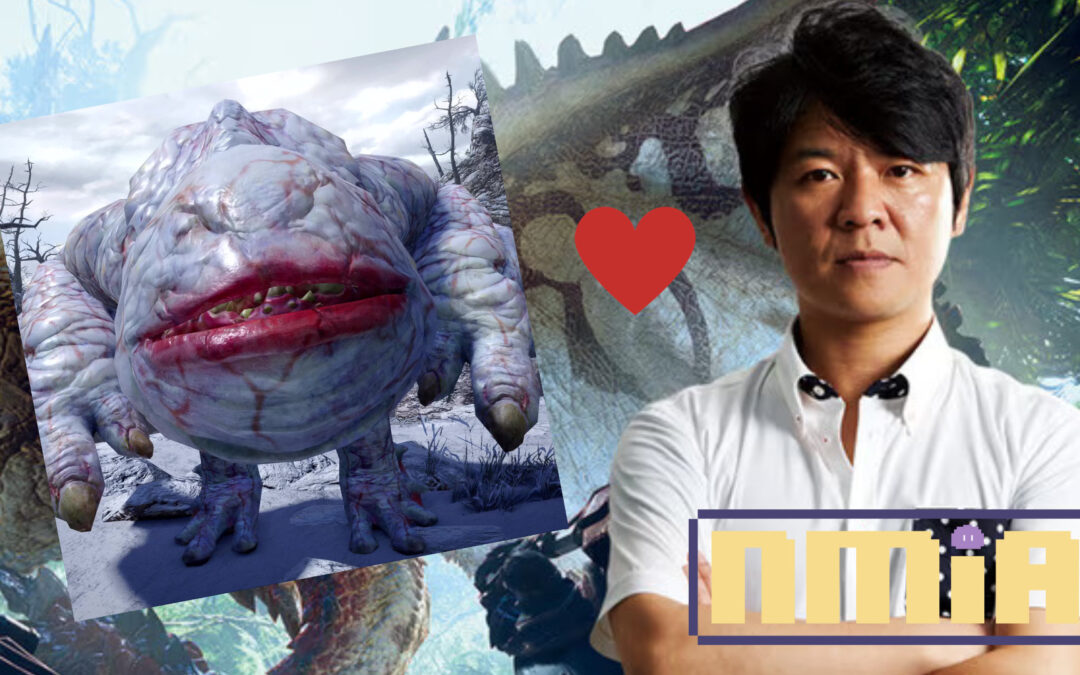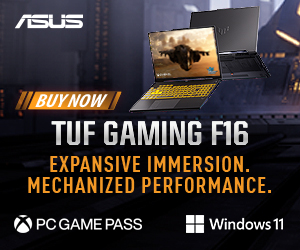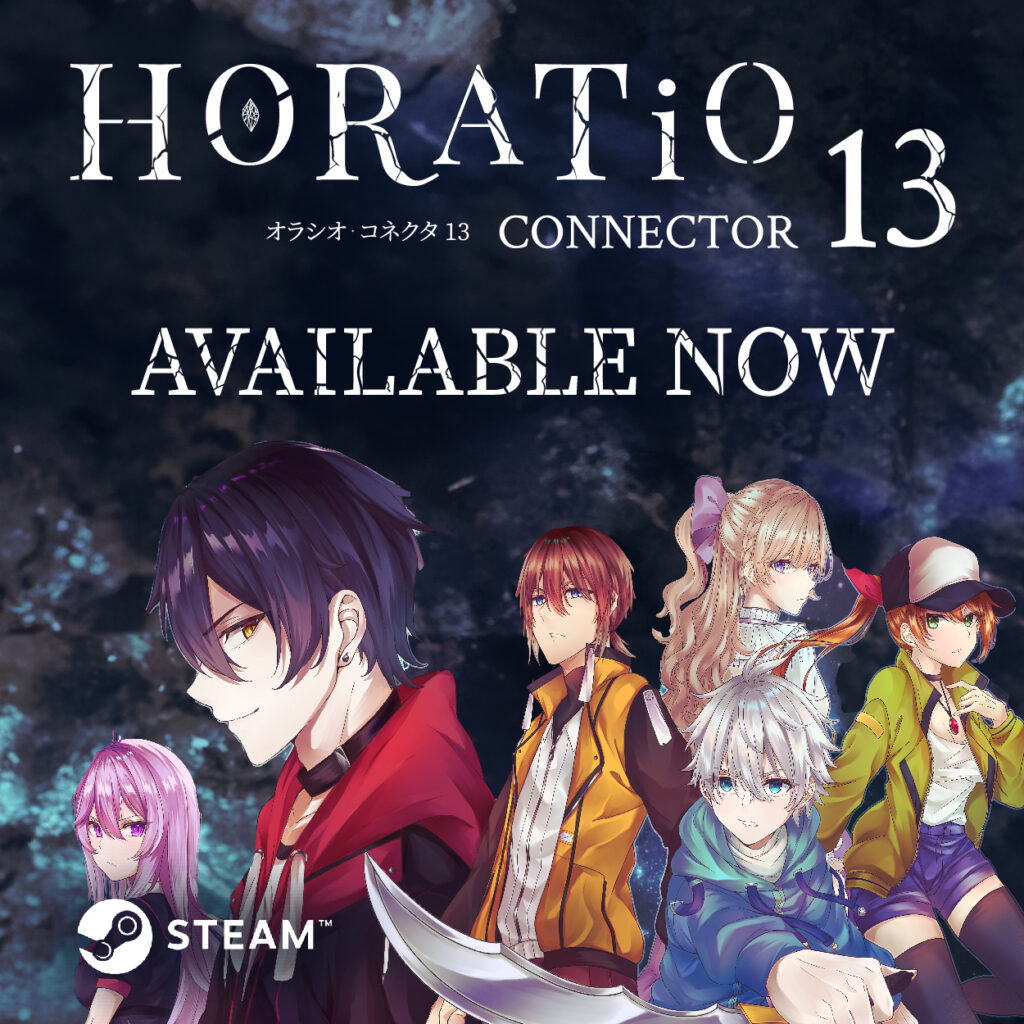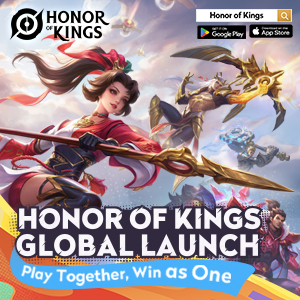Thanks to Capcom Singapore, I had the privilege to visit Gamescom Asia 2023 gaming exhibition in Singapore and was honored to participate in an interview with Ryozo Tsujimoto, the producer of the “Monster Hunter” game series. Now, let me organize the various questions raised during the interview and all the responses from the producer for my follow readers.

Q: “Monster Hunter” has always been regarded as a pioneer in the monster hunting action game genre, many have attempted to emulate this type of game. After all these years, “Monster Hunter” still stands at the top of this genre. What do you believe is the key to the success of this franchise?
Ryozo Tsujimoto: As everybody known, “Monster Hunter” releases a new game every few years. I believe one of the reasons this series remains so popular even after many years is the passionate love our development team has for the series, we are constantly eager to provide fresh content and gaming experiences. Besides that, rather than seeking inspiration from other similar games, we view the “Monster Hunter” series itself as a unique game genre and think about how to further develop this classic game. The key is that as a team, we collectively provide innovative ideas for the future direction of the “Monster Hunter” series.
Q: Based on your experience as a game producer, what were the most significant challenges you faced while developing the “Monster Hunter” games?
Ryozo Tsujimoto: There is one memory that I find both fondly and quite challenging, which was my experience back when I am the producer of “Monster Hunter Freedom Unite”. The development time for that game was actually quite limited, I recall having only around 10 months to develop and complete the game. So, completing the development work within that short 10-month timeframe was indeed a significant challenge for me.
Also, another quite challenging time was when we were developing “Monster Hunter World”. Because it represented a return to high-spec gaming consoles of the current generation for the Monster Hunter series, this return meant that we need to develop a game of such immense scale and to make it global release at the same time, taking the series to an entirely new level. That period was also quite challenging for us.

Q: This series has a very passionate and dedicated fanbase. How do you interact with and consider their feedback when developing games and expansions?
Ryozo Tsujimoto: We have always been actively collecting player feedback. Not only do we listen to the opinions of fans on-site at events like this, but we also proactively monitor feedback online. Additionally, we have branches in multiple regions, each with dedicated staff who collect and analyze all fan feedback and convey it to the development team. We strive to absorb and understand the responses and opinions of fans from around the world as much as possible.
Q: “Monster Hunter” has successfully built a dedicated global fanbase over the years. What do you believe are the core elements of the series that resonate with fans from different regions and cultures?
Ryozo Tsujimoto: Regarding how “Monster Hunter” attracts fans and players globally, I believe it’s important not to overemphasize the differences between regions and cultures, but instead to consider that players everywhere will have similar experiences within the game. Whether you are a first-time player or a seasoned veteran returning to “Monster Hunter,” there are core elements like the game’s outstanding combat action and mission completion, they kind of provide a sense of accomplishment in the game, and every player experiences these in the same way no matter what cultures what regions they are from. I think these factors are the key in bringing players from different cultures and regions together.
Another point worth mentioning is that one of the core experiences of “Monster Hunter” games is the multiplayer gameplay. One of the most enjoyable and valuable experiences in playing the game is when players team up to hunt down a massive monster together. So, I genuinely appreciate the “Monster Hunter” players in the global community because they are the ones who make this game so fantastic.
Q: For players in the Southeast Asia region especially, we have a lot of fond memories like going to internet cafes to play “Monster Hunter Portable 3rd” together with friends. How does the series strive to maintain the joy of players hunting together?
Ryozo Tsujimoto: First and foremost, I want to emphasize that multiplayer gameplay is vital to the “Monster Hunter” series. I think one of the crucial point is that when you’re playing “Monster Hunter,” you’re not competing for rankings or competing for rewards. Instead, you’re collecting materials from your hunts to make the equipment you desire, and then you continue to the next round of hunting. It’s this game loop, and you don’t get trophies or rankings for being the strongest hunter in the game, through this I hope that all players can engage in a fair and inclusive environment. For example, the materials you receive as rewards after a hunt, which are used to craft equipment, do not depend on how outstanding your performance is or how fast you complete the quest, instead it was based on probability. This ensures that even newcomers who may not have the same level of skill as veteran players can enjoy equal treatment, allowing everyone to grow in the same fair environment in the game.


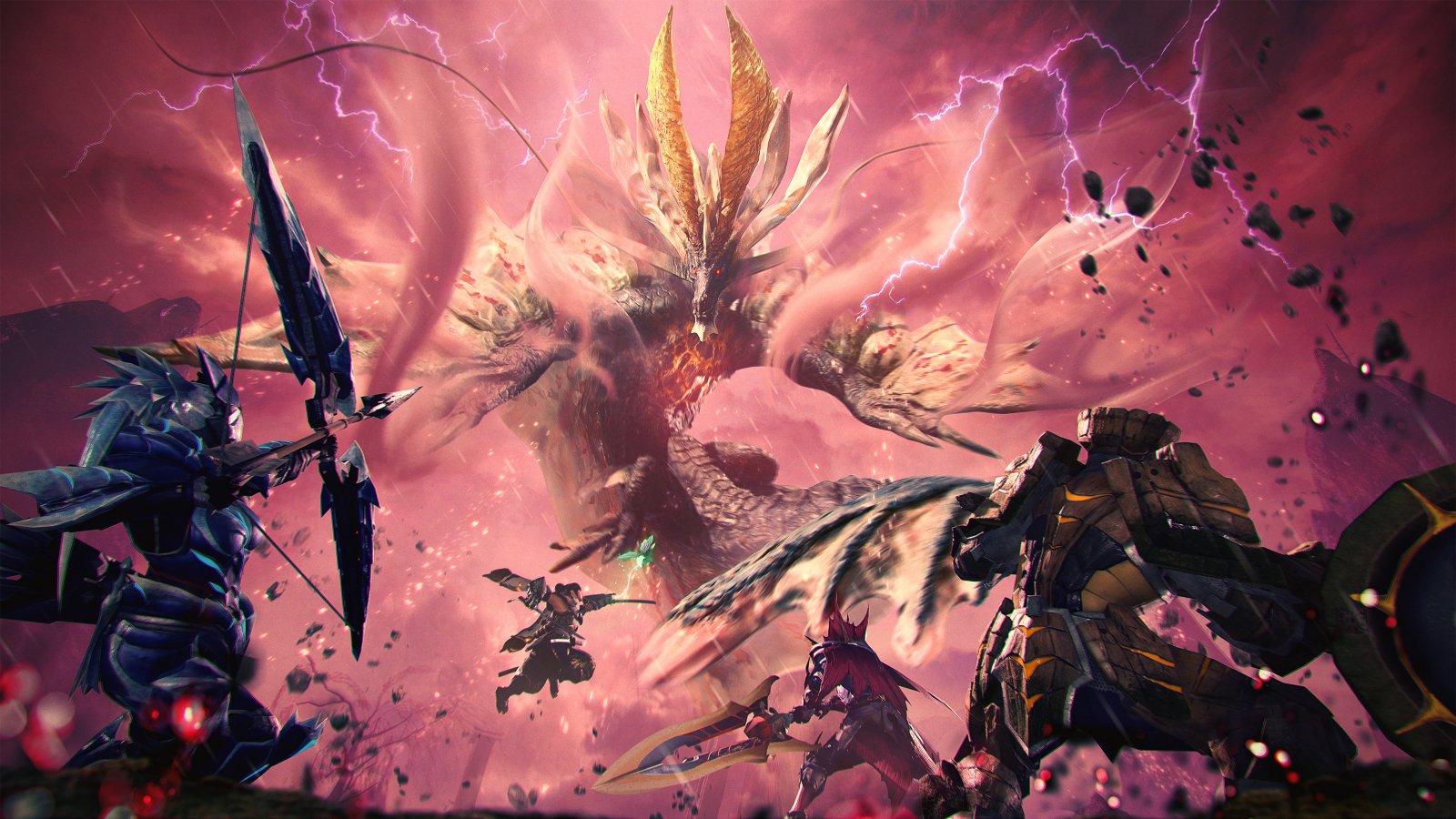
Q: How do you decide which monsters to bring back for the next Monster Hunter game? What is the decision-making process like? And why was Jyuratodus is chosen to return in “Monster Hunter Rise”?
Ryozo Tsujimoto: Certainly, the popularity of monsters is one factor, but it’s not the only consideration. When deciding which monsters to bring back, one of the most critical factors is how they fit into the overall balance of the game. We need to consider key questions like: “Does it make sense for this monster to return in the game at this moment?”, “Does this monster align with the overall theme of the game?” and “Is the distribution of monster types in the game even?” and more. Since we have many monsters to choose from, if we were to bring back only the popular ones, it would impact the game’s balance. This is probably one of the reasons why we decided to bring back Jyuratodus in “Monster Hunter Rise”.
Q: “Monster Hunter” has many fascinating monsters, and every fan has their own favorite one. With so many monsters to choose from, what is the process like for selecting a flagship monster as the cover monster? For example, Rathalos and Nergigante.
Ryozo Tsujimoto: Basiacally, the biggest thing that goes into deciding what is the flagship monster or cover monster is the theme of the game. I believe everyone knows that each “Monster Hunter” game has a unique theme, a specific artistic style, and design elements, so the cover monster should and must naturally embody that thematic concept. Additionally, another very important factor, of course, is that it should have a cool and impressive design, right? You know, it must exude an aura that makes you instantly think: “Now this is what I’d call the flagship monster!” when it makes its appearance. Therefore, flagship monsters typically reflect the world, ecology, and design elements and clues related to the story of the game they belong to.
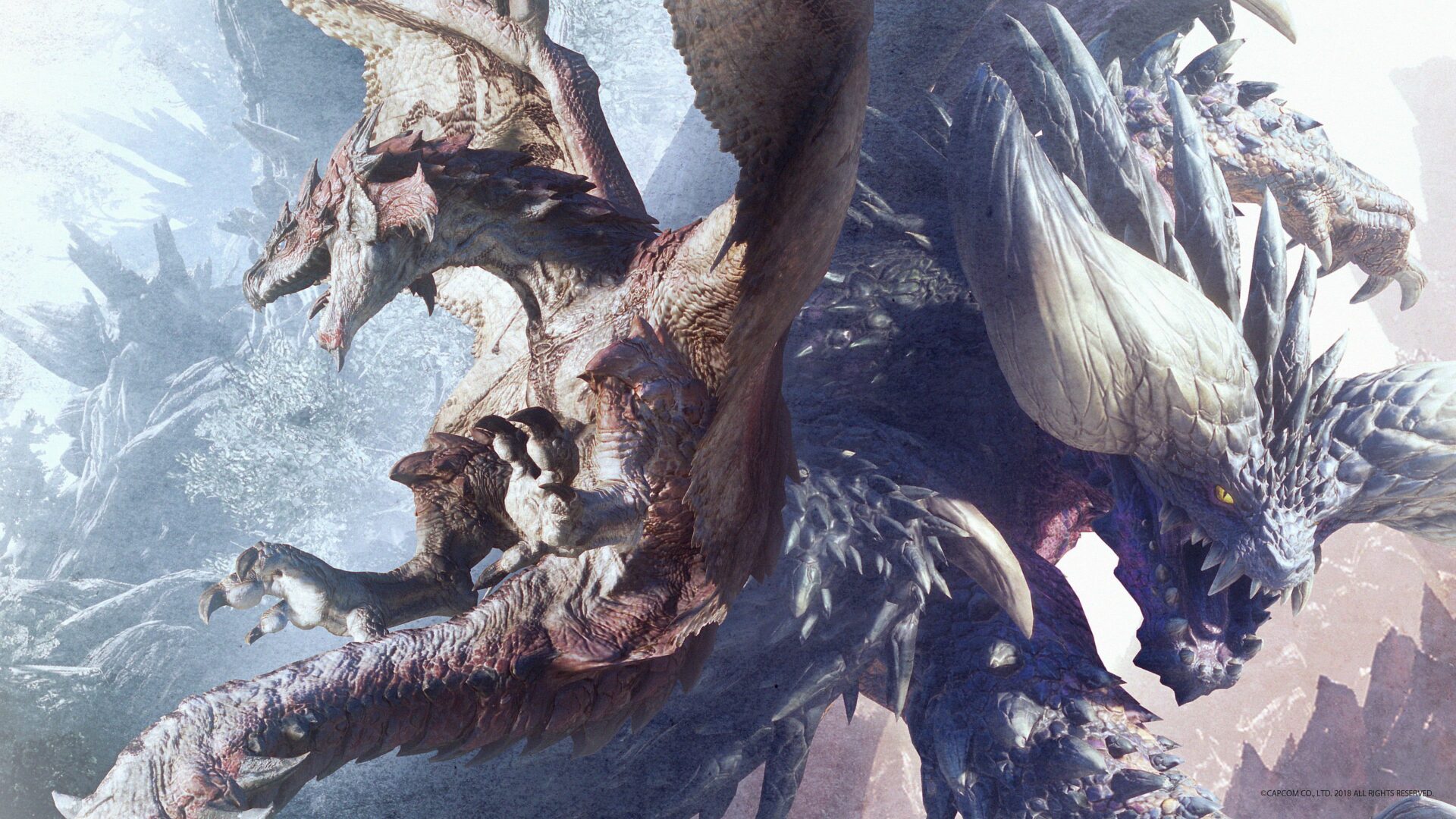

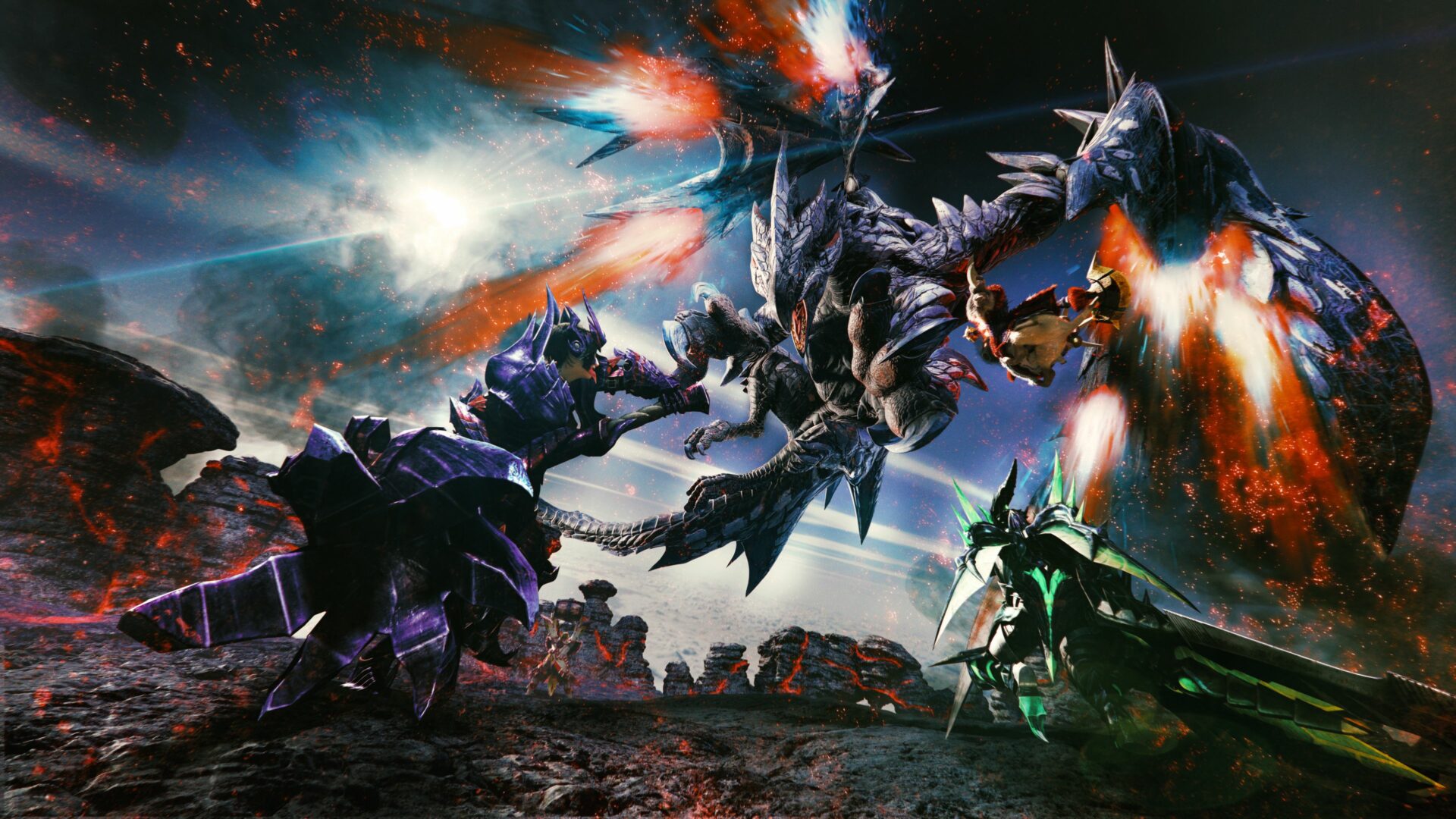
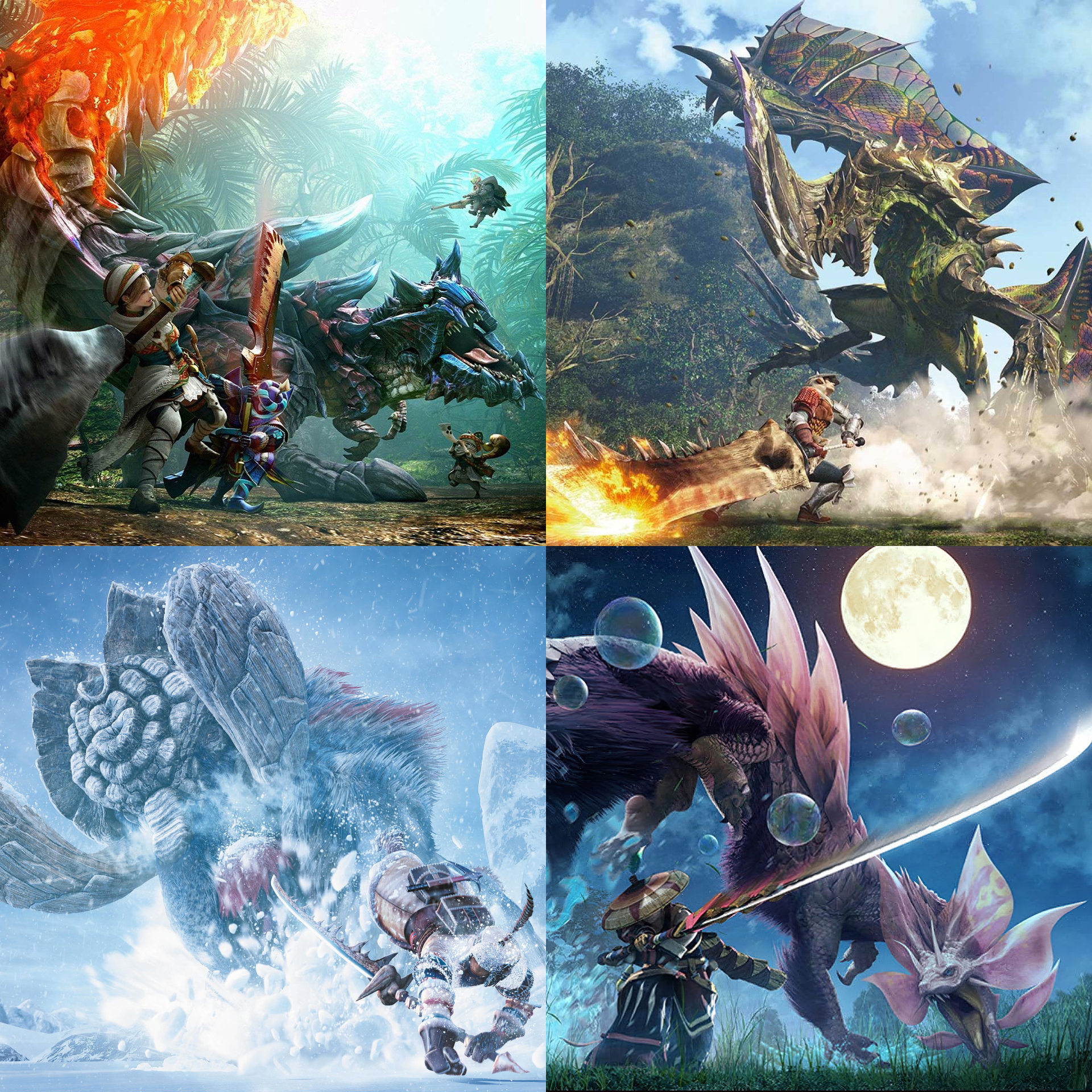
Q: Currently, three out of the top five highest-selling games from Capcom are from the “Monster Hunter” series, with “Monster Hunter Rise” and “Monster Hunter: World” being the top two. As the head of this series especially during its peak in popularity, what are your thoughts?
Ryozo Tsujimoto: Certainly, the “Monster Hunter” series has now celebrated its 20th anniversary, and I am extremely grateful for all the support and love from the development team, as well as all the efforts that have been put into creating this series over the years. This isn’t something that happens overnight, it’s not magic but rather a result of sincerity and hard work and also the love and support from all the fans. So, I’m truly filled with gratitude and thankful to all the fans. In the future, I hope to continue facing “Monster Hunter”, working together with the developers and fans to keep growing “Monster Hunter” into an even better game, and moving forward towards the future.
Q: Given the success of “Monster Hunter World” and “Monster Hunter Rise”, do you feel any pressure going forward? Has the success of these two titles set a standard for the future games in the series?
Ryozo Tsujimoto: Of course, I won’t deny that the success of “Monster Hunter World” brought some pressure to me. But as we discussed before, what’s most important for the future development of the “Monster Hunter” series is the team’s vision for where the series should go. Therefore, we don’t compare our future games to “World” but consider how the series should evolve in the future and challenge ourselves based on our decisions to make the next better game.
As for whether “Monster Hunter World” sets a standard for the series, I don’t see it that way. As a game company, Capcom has a rich history of action game development, and the basic principles for creating top-tier action games are quite similar, therefore, some resources can actually be shared between games. For example, improvements made in recent fighting games released by the company can reflect how we enhance the “Monster Hunter” series. We will continue to leverage the expertise and experience accumulated as a game development company to improve every game in the future, including “Monster Hunter”.
Q: In June 2023, CAPCOM announced that “Monster Hunter World” had become the best-selling game in Capcom’s history. In your view, what factors contributed to the success of this game?
Ryozo Tsujimoto: Regarding “Monster Hunter World” becoming the best-selling game in Capcom’s history, I didn’t dwell too much on the specific reasons but rather saw it as a culmination of the development team’s efforts to make “Monster Hunter World” a game that could attract and accommodate as many players as possible. For example, “Monster Hunter World” reached a vast global audience on both PC and console platforms because of the development team’s hard work in making it as accessible as possible to all players.


Q: “Monster Hunter World” and “Monster Hunter Rise” were originally developed for different platforms. What do you consider to be the biggest challenges when developing “Monster Hunter” titles for different platforms?
Ryozo Tsujimoto: I see. When developing games for different platforms, we not only consider the platforms themselves but also the gameplay of the game. For example, “Monster Hunter World” was developed for high-performance platforms, while “Monster Hunter Rise” was designed for portable platforms, and the gameplay is tailored to these differences. For instance, when we were developing “Rise”, it was designed with a focus on the portable gaming experience. Therefore, we took into account factors that would make the game accessible for quick play, allowing players to enjoy it while on the go or during short breaks.
Q: As the producer of the “Monster Hunter” series yourself, do you often play “Monster Hunter” games in your leisure time or after work?
Ryozo Tsujimoto: Oh, yes, of course! As a producer, I’ve spent hundreds of hours behind “Monster Hunter” games just playing privately by myself. For example, with the recent release of the mobile game “Monster Hunter Now”, my hunter rank in the game is currently at 92.

Q: Is there any interesting monster design concept that you hope to incorporate into future games in the series, or are there any previous design concepts that had been removed from the games that you would like to revisit?
Ryozo Tsujimoto: Of course, I do have some monster design concepts that I’d like to include in future games, as well as some concepts from the past that couldn’t be realized at the time. However, I’m not able to reveal them now, as they might make a return in the future. Many design concepts couldn’t be realized due to the lack of necessary technology at the time, so it’s not out of the question for them to be implemented in the future games. So, when that monster design concept does indeed appear in a game we release in the future, I will definitely let everyone know which monster it is!
Q: Within the entire “Monster Hunter” series, is there a specific monster or monster design that you yourself find particularly interesting or memorable, and that you personally favor?
Ryozo Tsujimoto: Haha! Indeed. I find that “Fulu-Fulu” (Khezu) to be quite interesting and memorable. It’s also my favorite monster. Although it looks a little gross, it’s also very cute.
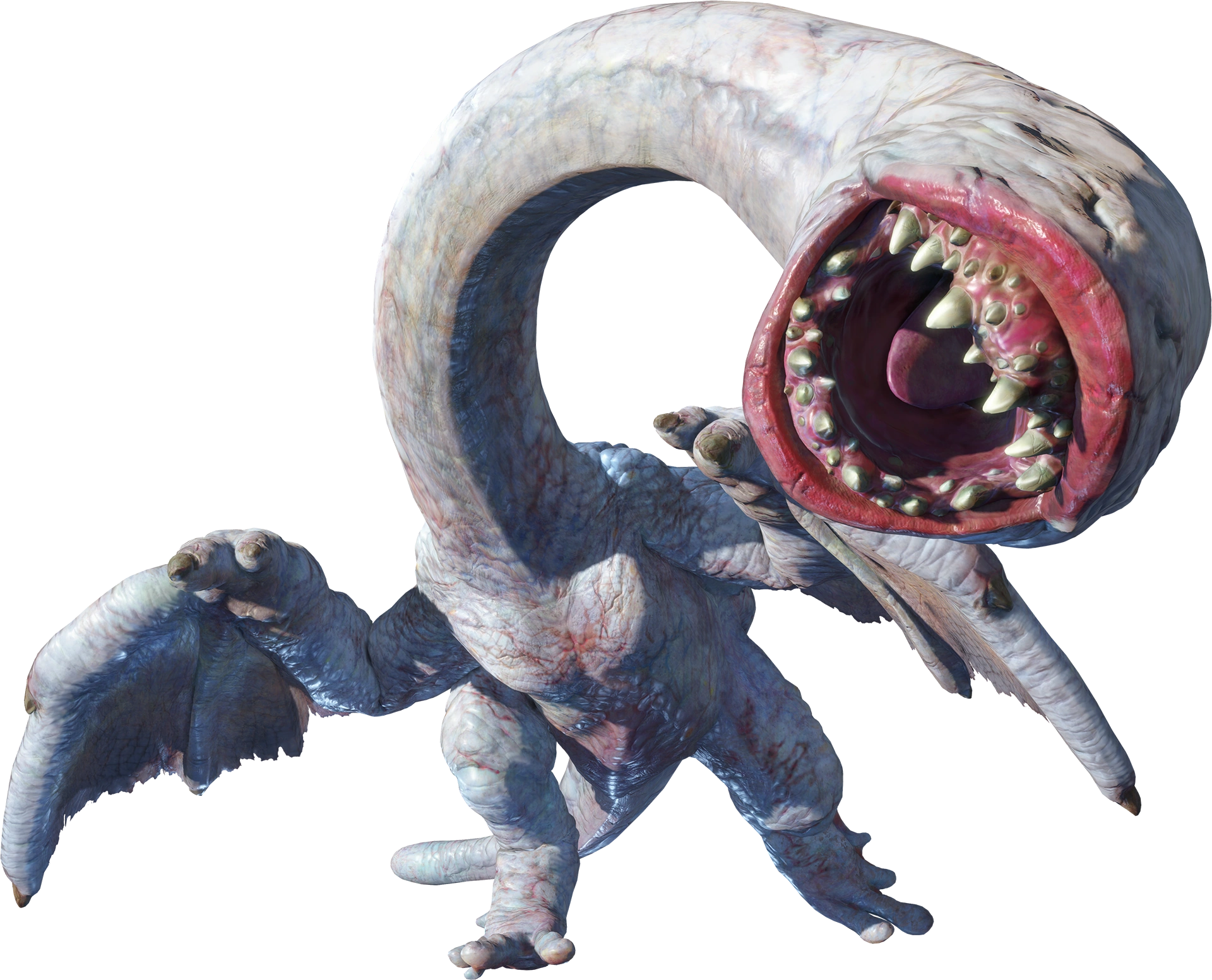
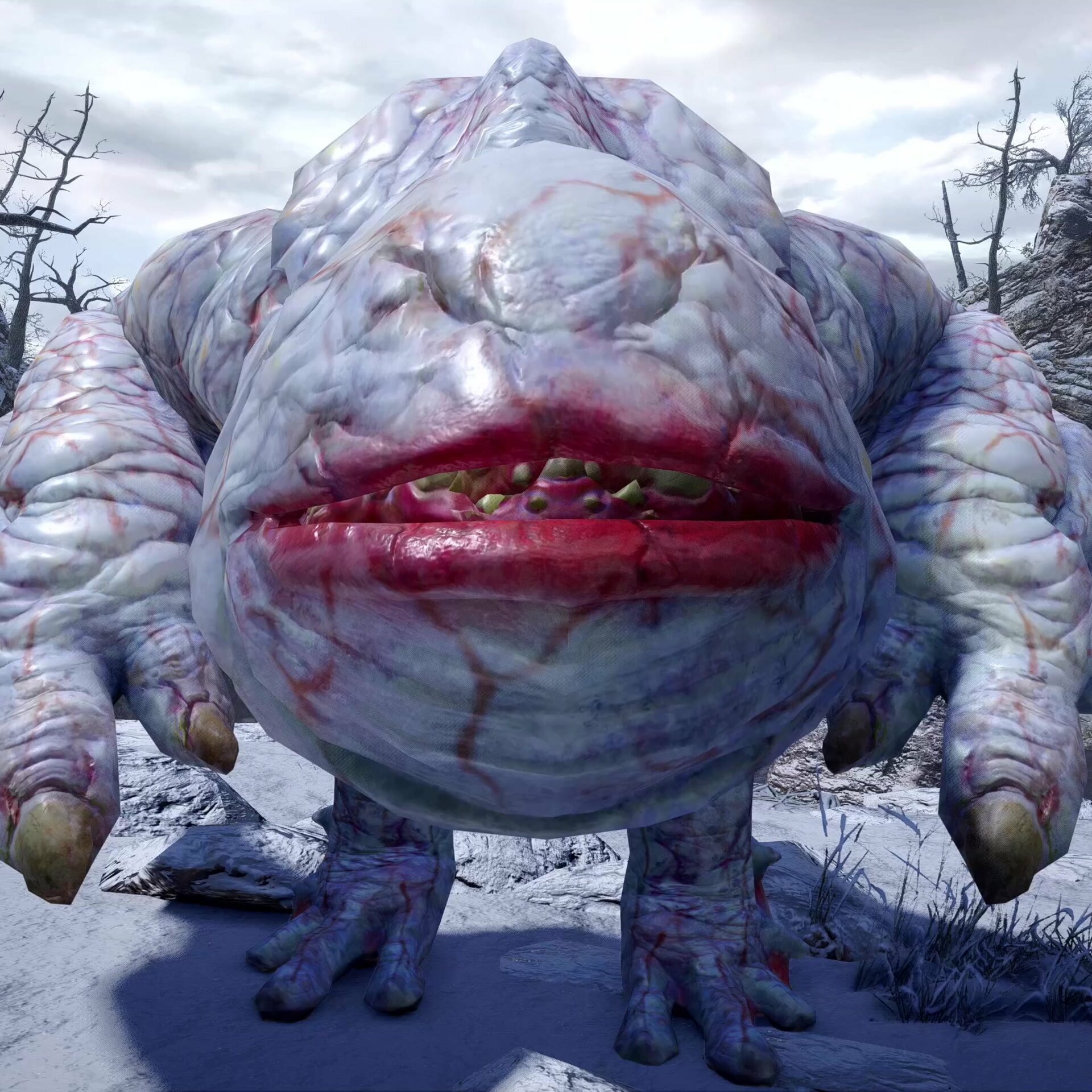
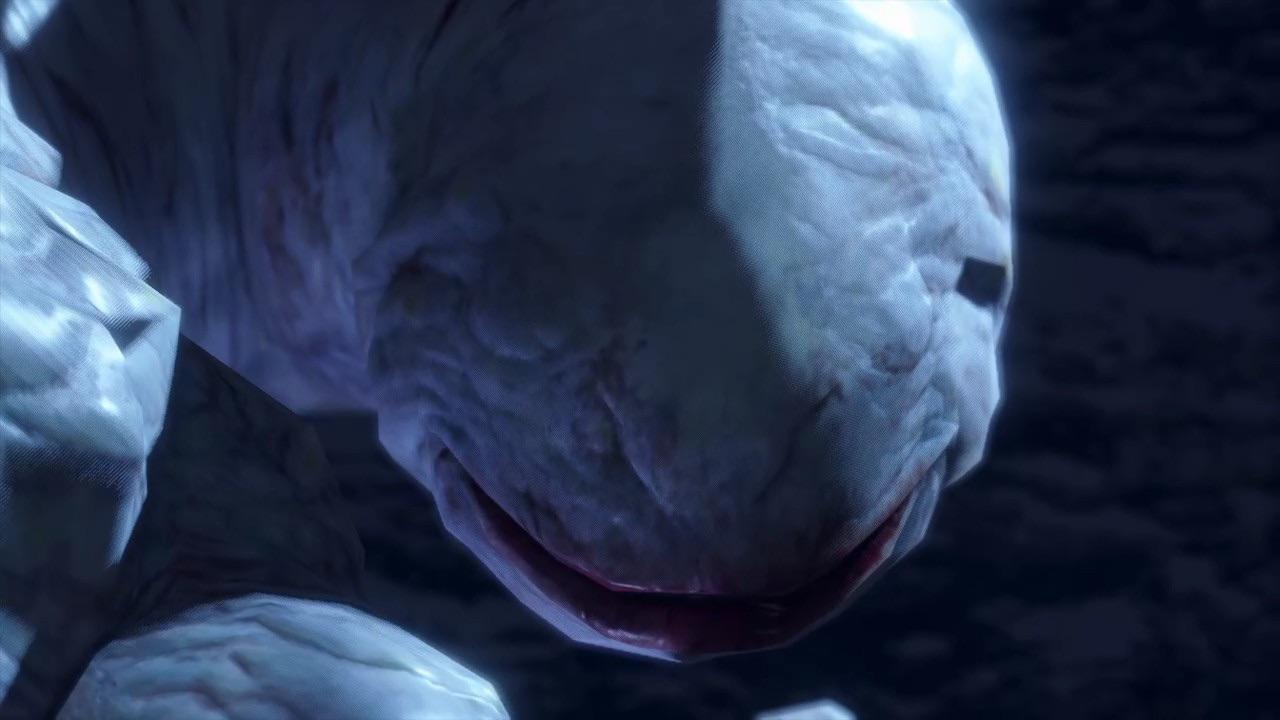
Q: Looking back on your experiences as the series producer, what has been your most memorable moment or achievement?
Ryozo Tsujimoto: There hasn’t been any particularly standout or defining moment, but I do recall one moment back when during a “Monster Hunter Freedom Unite” event held in Japan where a player told me that they really really wanted to play a quest that involved hunting two Rajangs at the same time. So, as a game producer, I made it happen as soon as I returned, and granted his wish by added that quest to the game.

Q: Next year, the “Monster Hunter” series will be celebrating its 20th anniversary. What can the fans look forward to especially now that the series is getting so much attention globally following the major success of “Monster Hunter World”?
Ryozo Tsujimoto: While we haven’t announced much at this point, we are preparing a lot for the 20th anniversary, and we believe it’s something that “Monster Hunter” fans will be excited about.

Concluding here is the entirety of the interview’s content with the “Monster Hunter” series game producer, Mr. Ryozo Tsujimoto. I would like to express my heartfelt gratitude to Mr. Ryozo Tsujimoto for his sincere and candid responses. It allows us, as players, to gain a deeper understanding of the development direction of the whole “Monster Hunter” series, and it let us aware of the dedication of the development team in constantly striving to make this series better for us. We look forward together to the future of “Monster Hunter”, anticipating a brand new hunter adventure, and the excitement of hunting massive monsters while listening to ‘Proof of a Hero’ once again!


